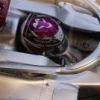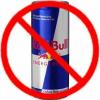Pardon me. Newbie here so i don't really know much about F1.
The development of turbocharged engines have been troubled for teams like Mclaren Honda and Renault if im not wrong for this season and Mercedes enjoying dominance so far for most of the races since they have an almost perfect PU while other teams have struggled to match them.
I understand that the change had to come someday but wouldn't it have been better to gradually switch over to turbocharged engines over the course of years rather than abruptly switching to T/C PU's at the start of last season, while reducing the emissions and fuel usage that critics of F1 have judged the sport with on the 2.4l V8s?
Perhaps a 3L-3.5L V6 would have done fine for a couple of seasons while teams would have been working on the development for the eventual introduction of the T/C 1.6L V6 we see today, negating the development hiccups that we see today from the Mchonda and RBR entrants.
If im not wrong, 3L V6s did exist in formula one, but that was very long ago.



























